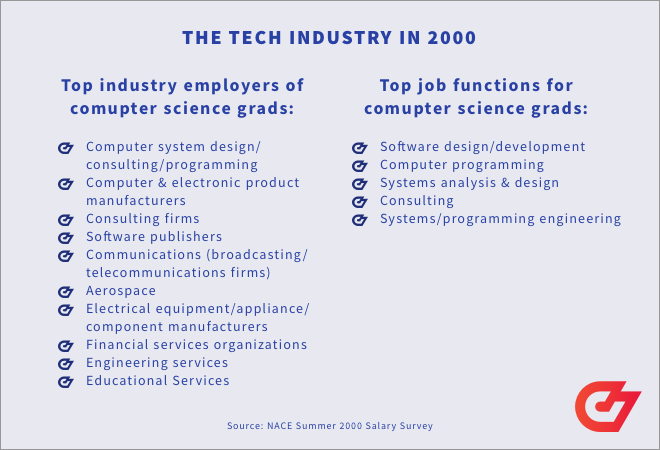
A variety of factors affect the pay of an Environmental Consultant. These factors include education, experience, location, and more. Here is a summary of the average salary for Environmental Consultants. In addition, we will discuss factors affecting the salary as well as which certifications are needed to become an Environmental Consultant. These are just a few of the many factors that impact an Environmental Consultant's income. We'll end by discussing the factors that can be attributed to the higher or lower salary of an Environmental Consultant.
Average salary
What is the average income for environmental consultants? This job title requires a combination of education, experience, and geographic location. Aside from education, other factors can affect the pay of an Environmental Consultant, such as the industry a person works in. Here are the top factors that influence the salary of an environmental consultant. Read the Professional Salary Report for more information. This report is a great resource for anyone who is interested in a career as an environmental consultant.
An Environmental Consultant's average annual salary is $79,026. This represents an average annual income of $38/hour. The highest paid environmental consultants make over $101k. The lowest 10% make $74,000 per year. Some states have lower salaries than others, but they still exceed the national average. The median salary for an Environmental Consultant in the United States is about PS22,000, while the highest-paid 10% earn more than 101,000 annually.

Factors that influence salary
There are many factors that can affect an environmental consultant's income. Often, they work in a combination of locations to complete projects and handle grunt work. They might have to travel or adapt to job regulations and changes. Because of this, they must have strong critical thinking and collaboration skills, as well as the ability to adapt to new situations. The field is very rewarding, and you must be passionate about helping the environment.
As an environmental consultant, you will need to have a solid knowledge of computer-aided designing (CAD) and geographic information systems. These tools can be used to analyze pollution data and develop mitigation strategies. Additionally, it is important to be able to code. This is a crucial skill because environmental consultants must be able to communicate with other departments and understand the data. Additionally, it is a good idea that you learn coding languages. You should also be aware that the income of an environmental consultant is dependent on their experience, education and training.
Average Salary based on Experience Level
The average salary for an environmental consultant varies depending on where you live, your skills, and how many years of experience. Entry-level environmental experts typically make between $38,000 and $47,000 per annum. Expert environmental consultants make close to $68,000 a year. However, this salary can vary widely. The average annual salary for environmental consultants is between $47,000 and $101,000. Here are some of the best paying jobs in the field. If you're interested in this field, get started by exploring the career opportunities listed below.
Bachelor's degrees are required for entry-level positions in environmental science. Many colleges and universities offer degree programs that focus on environmental science. Some program focus on one specific environmental issue, like natural science. Students may also choose to study physics, biology, and chemistry. Internships can also be part of many programs. These internships can help students discover their interests and gain valuable experience. You can also consider becoming an intern in an environmental consulting business while you are still at school. This is a great way for you to network and gain valuable experience.

Certification required for environmental consultants
A Bachelor's degree, or the equivalent, may suffice depending on the job position. Some employers prefer candidates with advanced degrees. In such a case, it is recommended to research the organization's website for the relevant postgraduate program. The job descriptions typically list the requirements for education and include information about employee biographies. It is also possible to obtain a master's degree. This postgraduate degree can provide you with the necessary experience to begin your new career.
The first step in becoming an environmental consultant or trainer is to get the proper certification. The CEP certification requires at least a Bachelor's degree. Depending on the country's requirements, a person can qualify for the certification by having at least three years of relevant experience in an environmental-related field. The certification requires one to five years of work experience in an environmental-related field, although it is possible to obtain certification through volunteer work.
FAQ
How do I choose a good consultant?
There are three main things to keep in mind:
-
Experience - How many years of experience is this consultant? Is she a beginner, intermediate, advanced, expert, or something else? Does her resume demonstrate that she has the required skills and knowledge
-
Education - What did this person study in school? Did he/she go on to further education after graduation? Can we see evidence of that learning in the way s/he writes?
-
Personality - How do we feel about this person? Would we hire him/her to be our employee?
-
These questions can help you determine whether the consultant is right for your needs. If you do not have the answer, it is worth interviewing the candidate to find out more.
How much should you charge to be a consultant?
It depends on what you are offering. If you are offering services for free, it is not worth charging anything. If you sell products or services, however, you must set prices based upon value.
If you're providing low-quality service, you don’t have anything to offer. Why would anyone pay anything for you?
If you're providing high-quality services you might ask for a greater price. Because people are aware of the value you provide, they will be more willing to pay you a higher rate. Clients who purchase multiple packages may be eligible for discounts.
What should I expect from my consultant
Within a few days of selecting your consultant, you can expect to hear back. They will often ask about your company's mission, goals and products. Then, they'll send over a proposal outlining the scope of work, estimated time frame, fees, deliverables, milestones, etc.
If everything looks good, then the two parties will negotiate a written contract. The type of relationship between them (e.g. employer-employee or employer-independent contractor) will determine the terms of the contract.
If everything goes well, the consultant should start work immediately. You will have access both to your documents and internal resources and the consultant's skills and knowledge.
Don't think that consultants are experts. It takes time and practice to become an expert on any subject you consult. So, don't expect your consultant to know everything about your business.
Statistics
- WHY choose me: Why your ideal client should choose you (ex: 10 years of experience and 6-week program has helped over 20 clients boost their sales by an average of 33% in 6 months). (consultingsuccess.com)
- "From there, I told them my rates were going up 25%, this is the new hourly rate, and every single one of them said 'done, fine.' (nerdwallet.com)
- Over 62% of consultants were dissatisfied with their former jobs before starting their consulting business. (consultingsuccess.com)
- 67% of consultants start their consulting businesses after quitting their jobs, while 33% start while they're still at their jobs. (consultingsuccess.com)
- So, if you help your clients increase their sales by 33%, then use a word like “revolution” instead of “increase.” (consultingsuccess.com)
External Links
How To
What does a typical consultant's day look like?
The type of work that you are doing will affect the typical day. But, in general, you will spend your time researching, planning and meeting new clients.
You'll often have meetings with clients where you can discuss issues and solve problems. These meetings can be conducted over the phone, by email, face-to-face, or online.
The proposal is a document that outlines your ideas and plans to clients. You will need to discuss these proposals with a mentor or colleague before you present them to clients.
After all the preparation, you'll need to start creating content. You could write articles, design websites, edit photos or conduct interviews.
Based on the scope and complexity of the project you may need research to obtain relevant statistics. You might need to determine how many customers you have, and whether they buy more than one product.
Once you have collected enough information, it's now time to present the findings to your clients. You can either present your findings in writing or orally.
Finally, you must follow up with clients after the initial consultation. You might contact them regularly to check on their progress or send them emails to confirm they have received your proposal.
Although it takes time, this process is worth it. It's also important to keep your eyes on the prize and maintain good relations with clients.